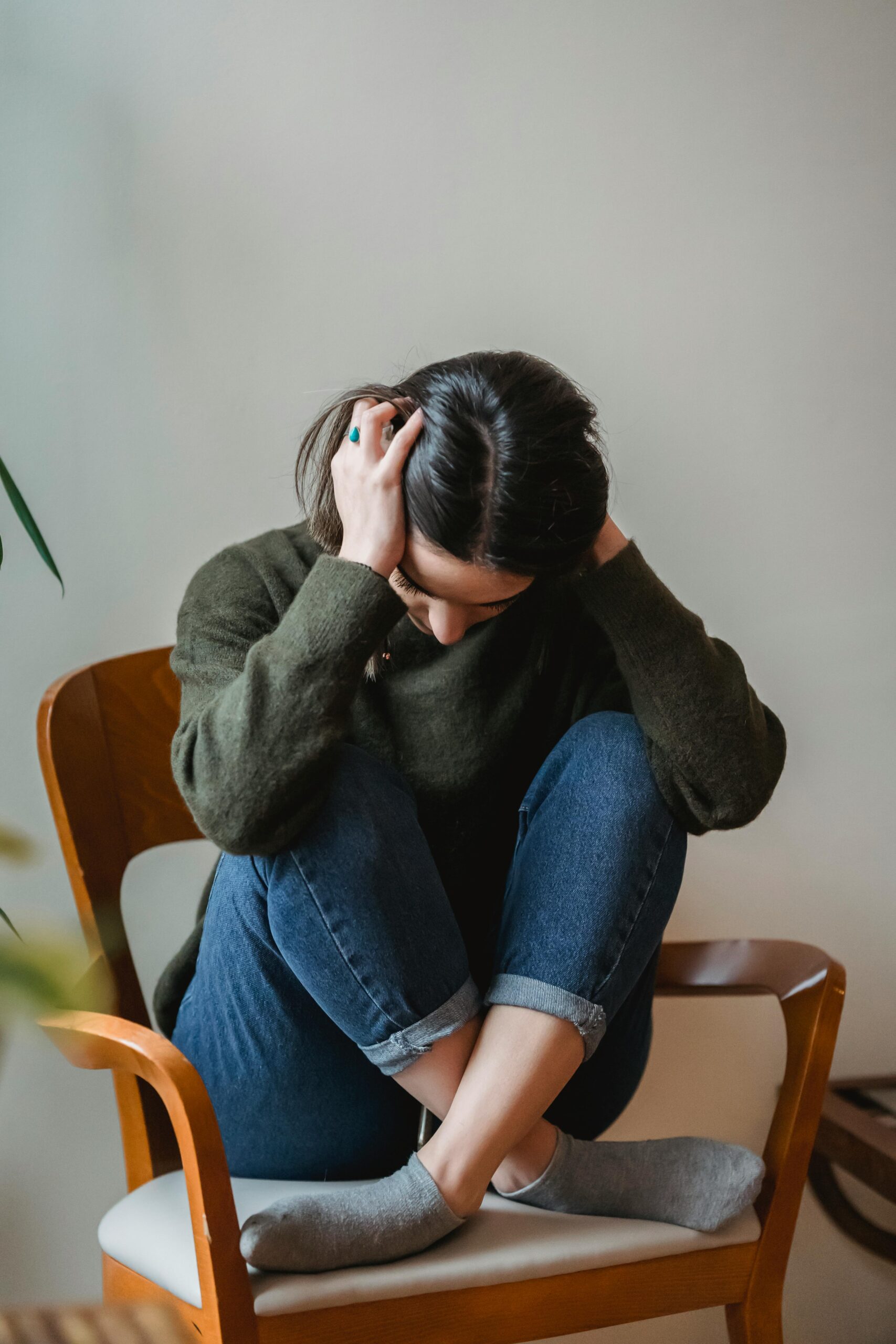Anxiety is a common mental health condition that affects millions. For some adults, anxiety can appear at any moment. Excess caffeine, social events and pressures, or even dating can trigger the anxious feelings. Women, however, tend to feel worry more so than men. With regard to women’s health, hormonal changes play a significant role in anxiety symptoms.

The Role of Hormones in Women’s Health
Hormones are chemical messengers that regulate various bodily functions, such as mood, stress responses, and emotional stability. In women, key hormones like estrogen, progesterone, and cortisol contribute to reproductive health and significantly impact mental health.
Hormones and Anxiety
Estrogen
Estrogen is primarily known for regulating the menstrual cycle and reproductive system, but it also has an effect on the brain. This hormone influences the production of serotonin, dopamine, and norepinephrine, which helps with mood regulation. High levels of estrogen can enhance your mood and provide a calming effect, while low levels contribute to mood swings, irritability, and anxiety.
Progesterone
As another vital hormone in the female body, progesterone works directly with estrogen to regulate the menstrual cycle and maintain pregnancy. During pregnancy, ovulation, or even menopause, progesterone levels naturally rise, which causes anxiety and agitation. The fluctuation of this hormone can even cause depression or other mood disturbances.
Cortisol
Cortisol is known as the “stress hormone” because it is the body’s reaction to stressful stimulations. While cortisol helps us with our “fight-or-flight” response, chronic stress and elevated cortisol levels can contribute to anxiety. Women may experience variations in cortisol levels due to hormonal changes throughout their lifetime, such as menstruation, pregnancy, and menopause.
The Menstrual Cycle
The menstrual cycle causes continuous fluctuations in hormones. The premenstrual phase typically sees a rise in estrogen and a rise in progesterone. Some women experience premenstrual syndrome (PMS), or even more severely, premenstrual dysphoric disorder (PMDD). Both of these cause significant anxiety, irritability, dysregulated emotions.
Pregnancy and Postpartum
Pregnancy brings about dramatic hormonal changes due to the growing fetus. While many women can experience a sense of well-being during pregnancy due to the increase in estrogen and progesterone, others may face heightened anxiety, particularly if there are complications or pre-existing mental health conditions. After childbirth, there is a sudden drop in these hormone levels, which causes postpartum depression and anxiety.
Menopause
Menopause marks the end of a woman’s reproductive years and includes a decline in estrogen and progesterone production. This hormonal shift can lead to physical and psychological symptoms, including hot flashes, sleep disturbances, and anxiety. Anxiety and mood disorders are more likely to develop during this phase of life.
Managing Hormonal Anxiety
Understanding the connection between hormones and anxiety is essential for effective management and treatment.
Lifestyle Modification
Regular exercise, a balanced diet, adequate sleep, and stress management techniques can help regulate hormones and reduce anxiety symptoms. Avoiding excessive amounts of caffeine, alcohol, and substances like nicotine can also help with natural relaxation.
You can also try to boost your levels of oxytocin, the hormone that helps reduce stress and anxiety. Oxytocin is released during contact with loved ones. Cuddling with your partner, spending time with friends and family, and petting an animal are great ways to increase this hormone to promote relaxation and trust.
Natural Remedies
Some women find relief through natural remedies, such as herbal supplements, acupuncture, yoga, and mediation. There is no “one-size fits all” remedy when it comes to hormone regulation, so it’s important to try to figure out what works best for you.
Therapeutic Support
Therapies, such as cognitive-behavioral therapy (CBT), mindfulness techniques, and even some medications, are effective in treating anxiety. Consult with a healthcare provider about medical interventions if you feel they are needed. Counseling can provide comfort and practical strategies for coping with anxiety. If you are feeling the effects of hormone imbalances, reach out for mental health support today!





Leave a Reply